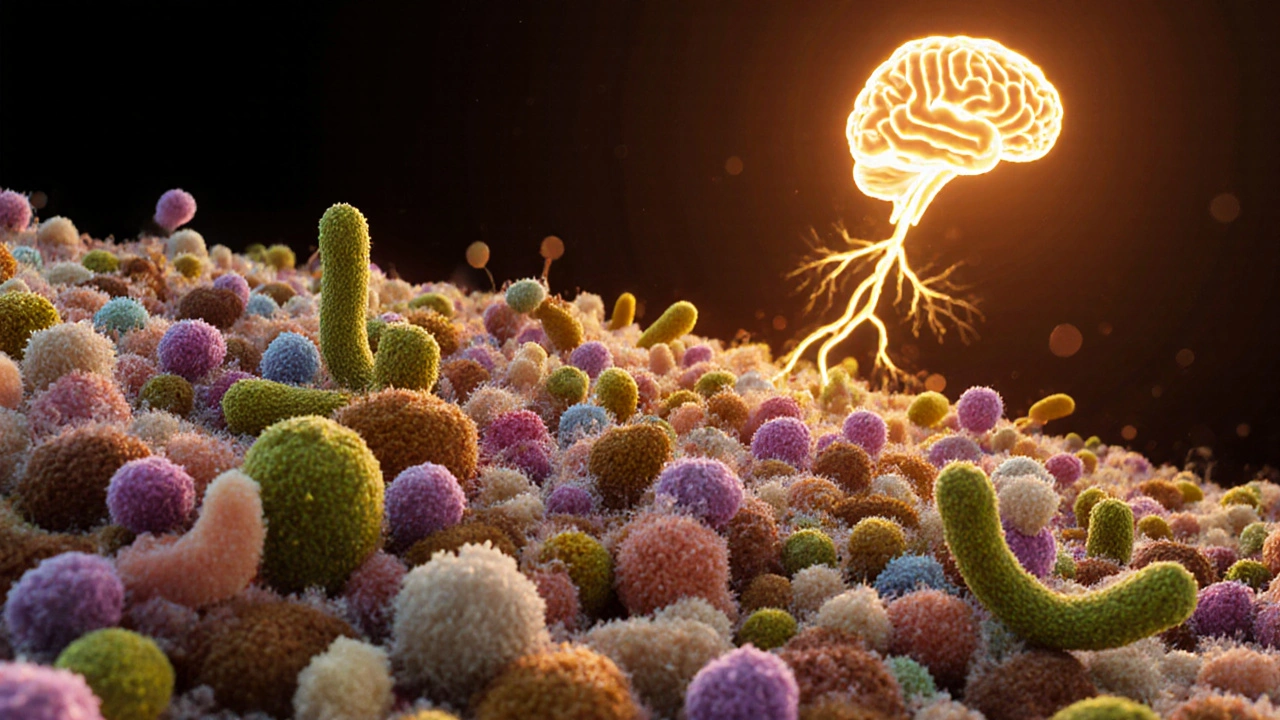Microbiome: How to Care for Your Gut for Better Health
Your gut holds trillions of microbes that shape mood, immunity, and weight. Most people know "good bacteria" matter, but few know how daily choices change the community living inside you. This page gives simple, practical steps you can use today to support a healthier microbiome.
Easy daily habits
Start with fiber. Aim for a variety of plant fibers each day: vegetables, fruit, beans, oats, and whole grains. Fiber feeds helpful bacteria and makes short-chain fatty acids that fuel your gut lining. Add one extra serving of vegetables or a spoonful of beans to a meal and you already move the needle.
Cut down on ultra-processed foods. These often lack fiber and include additives that upset gut balance. Swap one packaged snack for a whole-food option like an apple with nut butter.
Prioritize sleep and manage stress. Sleep loss and constant stress change gut chemistry quickly. Try one 10-minute breathing break or a wind-down routine before bed to calm both mind and microbes.
Use antibiotics only when you must. Antibiotics kill harmful and helpful bacteria alike. If you take them, ask your clinician about simple follow-up strategies to rebuild gut diversity.
Foods that feed your microbiome
Fermented foods add live microbes and variety. Try yogurt with live cultures, kefir, sauerkraut, kimchi, or tempeh a few times a week. Start small if you're new to them and watch how your body reacts.
Include prebiotic foods daily. Garlic, onions, leeks, asparagus, bananas, and oats feed beneficial microbes. Even small amounts every day help.
Choose whole plants over isolated supplements when possible. Polyphenol-rich foods like berries, green tea, and dark chocolate feed unique microbes that support metabolic health. A small handful of berries or a cup of green tea with meals adds helpful compounds.
Taste diversity. Different foods grow different microbes. Eat seasonal produce, vary your grains, and try new vegetables. Diversity is one of the easiest ways to boost your microbiome.
Keep hydrated and move daily. Water and gentle activity support gut transit and microbial balance. If you want a probiotic supplement, pick one with documented strains and a clear dose. Track how you feel for two weeks after a change: energy, digestion, sleep, and mood are good signs.
If you have persistent gut issues, work with a clinician. Simple lab tests and a tailored plan can target specific needs. Small, consistent changes often deliver the biggest results over time.
Treat your gut like a garden. Plant useful seeds, feed them, remove what harms them, and the whole system will reward you.
Don't chase miracle probiotics. Many products list strains but not doses. Look for brands that show strain names and colony counts at expiration, not just at manufacture. Probiotics can help for short courses, like after antibiotics, but they don't replace good diet.
Travel and gut health: sudden changes in food and water affect microbes. Protect yourself by sticking to cooked foods at first, keeping hydrated, and reintroducing familiar fibers. A brief course of fermented foods on the trip can ease transition.
Kids and the microbiome: skin-to-skin contact, varied foods once solids start, and outdoor play expose children to microbes that shape immune responses. Over-sanitizing and unnecessary antibiotics can narrow microbial exposure.
Small steps matter. Swap one meal a week to include beans and a fermented side. Try a new vegetable each month. Track results and adjust. Over months, these habits change the ecosystem inside your gut more than any quick fix.
Start small and be consistent today.
Gut Health: The Foundation of Your Overall Nutrition and Well-being
Gut health is the foundation of nutrition and overall well-being. A balanced microbiome improves digestion, immunity, mood, and energy. Learn how food, stress, and lifestyle shape your gut-and how to heal it naturally.
View MoreGut Health Balance: The Real Key to Feeling Good
This article dives into how gut health shapes wellness, breaking down why balance matters much more than people think. Learn what disrupts your gut, discover simple changes that work, and get practical tips for supporting your gut every day. Find out which habits, foods, and routines have proven effects on your digestive system. Walk away armed with real-life strategies, not just theory, for better gut health. Whether you’re struggling with bloating or just want more energy, the answers are simpler than you expect.
View MoreGastro Health: Why Your Gut Deserves More Attention
Most people ignore their gut until something goes wrong, but your digestive system is at the center of so much more than you think. It manages more than just how you break down food—your energy, immunity, and mood often start with your gut. This article breaks down what really goes on inside your digestive tract, why it matters for your daily life, and easy tips you can use to keep everything running smoothly. Skip the guesswork and discover why protecting your gut is one of the smartest moves you can make for your overall well-being.
View MoreDecoding Gut Health: The Science Behind a Happy Tummy
Our gut is a bustling ecosystem of trillions of bacteria playing a key role in digestion, immunity, and even mood regulation. Understanding what makes our gut healthy can help prevent digestive discomforts and promote overall well-being. From the impact of diet and lifestyle to practical tips on nurturing a thriving microbiome, this article delves into actionable steps for a happier gut. By decoding gut health, you can harness the power of this vital system to transform your physical and mental health. Dive into the fascinating world of gut science to unlock the secret to a vibrant life.
View MoreThe Future of Personalized Medicine and Gut Health: Unlocking the Secrets Within
The future of personalized medicine is evolving rapidly, particularly with growing insights into gut health. Our gut, home to trillions of microorganisms, plays a crucial role in our overall health. Personalized medicine leverages unique genetic and microbiome data, helping individuals improve their health outcomes. This approach is set to revolutionize healthcare, offering tailored treatment, prevention, and diagnosis through an understanding of our gut's complex ecosystem.
View MoreGut Health: Essential Insights for a Healthy Lifestyle
Gut health plays a crucial role in maintaining overall well-being, serving as the foundation for a healthy body. This article explores the significance of a balanced gut microbiome, its impact on digestion and immunity, and provides practical tips for improving gut health. Understanding the connection between diet, stress, and gut bacteria can empower individuals to make informed lifestyle choices. Embracing a proactive approach to gut health can enhance vitality and prevent various health issues.
View MoreExploring the Connection Between Gut Health and Sleep Quality
The intriguing link between our gut health and sleep quality is becoming increasingly clear. A healthy gut microbiome not only supports digestion, but can also improve our sleep patterns and overall quality of rest. This article delves into how the biodiversity of gut bacteria affects different stages of sleep and what you can do to enhance this connection for better sleep.
View MoreThe Secret to Radiant Skin: Exploring the Gut-Skin Axis
This article delves into the fascinating world of the gut-skin connection, a topic that has captured the attention of health enthusiasts and scientists alike. We explore how the health of our gastrointestinal tract can directly influence our skin's appearance, offering insights into the science behind this phenomenon. By understanding the role of the microbiome, dietary choices, and lifestyle factors, we uncover practical tips for enhancing skin glow through gut health. This piece serves as a comprehensive guide for anyone looking to achieve a radiant complexion by focusing on internal well-being.
View More












